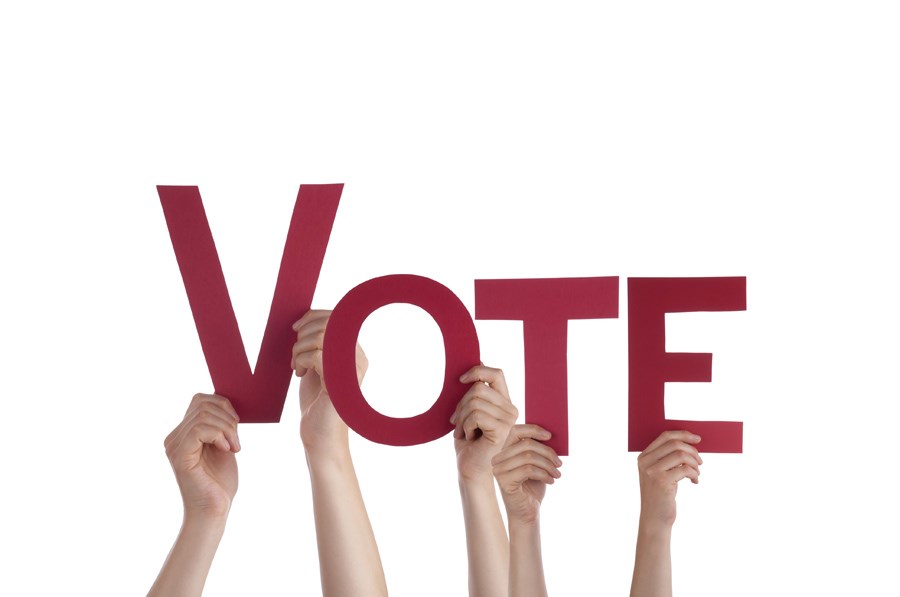If Prince George youth had anything to say about Saturday's vote, city council would have had a drastic overhaul.
That's based on a faux-election held with the help of Student Vote, a Canada-wide initiative that aims to involve youth in the political process. In B.C., 276 schools and more than 29,000 students took part in the mock municipal election.
Five schools in Prince George and 553 students cast their votes to elect Mayor Lyn Hall, who edged out Don Zurowski 282 votes to 249. The similarities all but stopped there.
The votes from Prince George and DP Todd secondary schools combined with Peden Hill, Heather Park and Foothills elementary schools brought in only three familiar faces, including two current councillors Garth Frizzell and Susan Scott, and re-electing Dave Wilbur, who failed to make top-eight on Saturday. The students opted for five new faces in Travis Shaw, Ron Gallo, Jason Luke, Monica Peacock and Ravi Saxena.
Top vote-getting councillors Murry Krause and Brian Skakun figured in the very bottom of student polls.
A strong online presence with a simple message that connected with youth made for the best platforms for students, said PGSS teacher Michelle Scott. Social media and a succinct video clips also helped synthesize information into an accessible format.
"They were able to watch that and take that in and then process it versus them trying to sift through lots of statements and pull out those core things that resonated with them," she said of the more successful candidates.
Her 60 students, grades 7 to 10, fell more in line with Saturday's voters, electing five of the eight current councillors.
Even so, Scott they were still looking for an approach that recognized issues important to their generation.
"I think they probably coming from younger perspective, they wanted to know about the things that would impact them," she said, like services and facilities. "For some of the kids I think youth or a voice for youth was a common factor."
She was surprised that many of her students were interested in approaches to infrastructure - but that came after a classroom discussion with political science professor Tracy Summerville. As the students learned about municipal politics in the weeks leading up to the election, they became more comfortable with the issues.
"They're very confident in making decisions, so that's great to see but they need accessible information and age-appropriate," said Scott.
Peden Hill Elementary teacher Terri Reed said students bought into the election fervor.
"All of a sudden they became very aware of what was going on around them," she said, adding students would often rush into the classroom referencing candidates they'd heard on the radio or seen on TV. "They led the lessons lots of times with questions they had."
Not surprisingly, her class re-elected Coun. Albert Koehler, who was a regular in Reed's classroom throughout the year. But, in the final Student Vote tally, Koehler didn't quite make the cut, coming in tenth.
For Reed's students, candidates like Garth Frizzell made it in because he discussed outdoor activities and Ravi Saxena said on his website that youth needed more to do in the city.
"I don't think people voting 18 and older really cared about that but our students definitely did."
Reed agreed that an online presence was integral to capturing her students' interest; if council hopefuls didn't have an online presence, the students would move on.
"Their websites made the most impact for these students," she said.
Reed said she's looking forward to Monday's debrief, to talk about how their Student Vote results compare to the 19,710 votes cast Saturday.
"It provided some real accountability for the students because they knew they were really going to vote, and the votes were going to be tallied," said Reed of her student's participation.
For Scott, watching the students go through the voting process - complete with providing photo ID, signing their name, and marking their ballots - hammered home the difference even a mock election can make.
"It made me think another positive is not just the fact that they're going to feel comfortable voting," she said, noting some students also acted as voting officials. "But also I had that thought that maybe they're also going to be people who are involved in volunteering to make sure elections happen."



